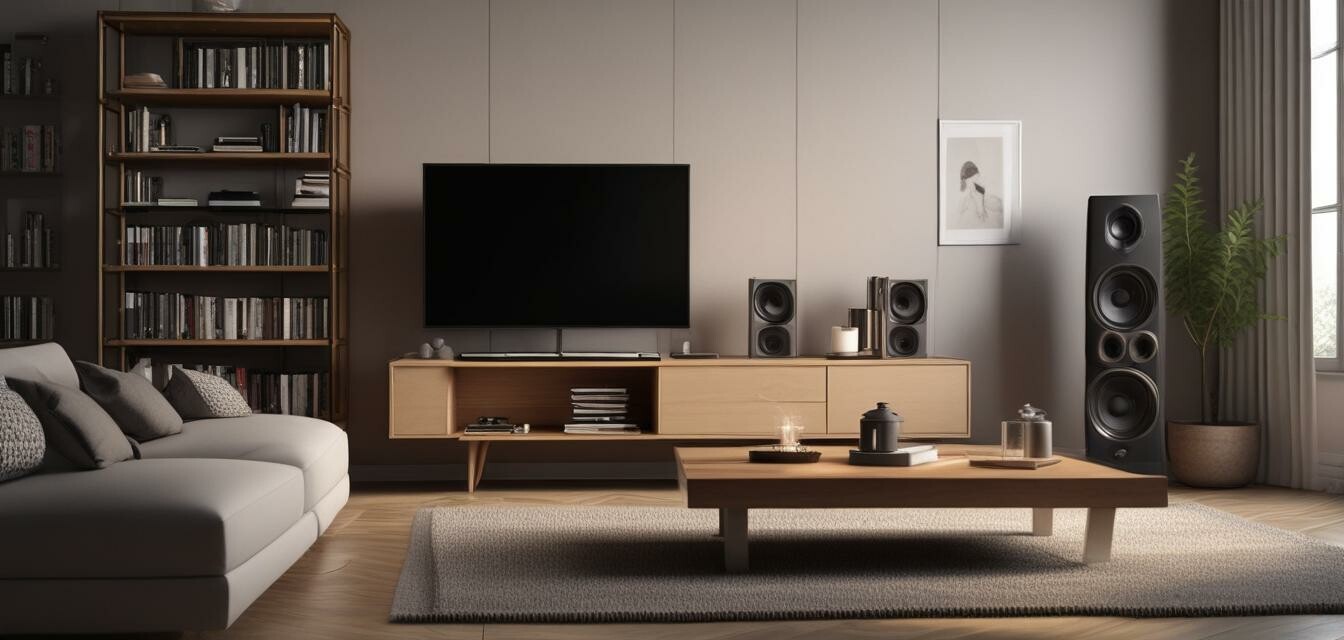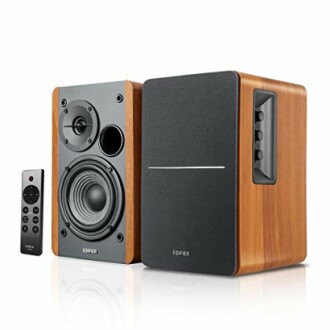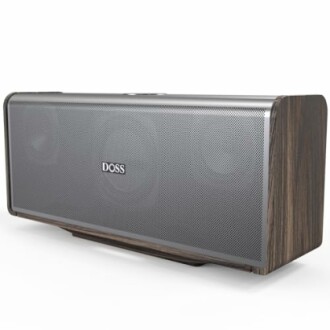
Beginner's Guide to Choosing Bookshelf Speakers
Key Takeaways
- Consider the size and space of your room before choosing speakers.
- Look for different connectivity options such as Bluetooth and wired connections.
- Evaluate sound quality, including power output and distortion levels.
- Choose speakers that complement your interior design.
- Review features like remote controls and size adjustments for better usability.
If you're a music lover or a home theater enthusiast, choosing the right bookshelf speakers can greatly enhance your audio experience. However, with so many options available, it can be overwhelming for beginners. This guide provides essential tips for selecting the perfect bookshelf speakers that suit your needs, preferences, and spaces.
What Are Bookshelf Speakers?
Bookshelf speakers are compact audio devices designed to deliver high-quality sound while occupying less space than traditional floor-standing speakers. They are perfect for small rooms, home offices, and multimedia setups. The versatility of bookshelf speakers makes them a popular choice among audiophiles and casual listeners alike.
Key Factors to Consider When Choosing Bookshelf Speakers
1. Size and Space
Consider the dimensions of your room, as well as where you plan to place the speakers. Here are a few size-related points to keep in mind:
- Small rooms pair well with smaller speakers.
- Larger rooms may require speakers with higher output power.
- Ensure they fit comfortably on shelves or stands without overcrowding the space.
2. Sound Quality
Sound quality is crucial when selecting bookshelf speakers. You should assess:
- Maximum output power: High wattage usually leads to clearer sound.
- Frequency response: Look for a wider range to capture more details in audio.
- Distortion levels: Aim for speakers that minimize distortion for balanced sound quality.
3. Connectivity Options
Different connectivity options can affect how you use your speakers:
- Bluetooth for wireless connectivity.
- Optical inputs for lossless connections to TVs and computers.
- RCA or Aux inputs for traditional wired connections.
4. Design and Aesthetics
The design of your bookshelf speakers should match your home decor. Choose from various styles, finishes, and colors to complement your space.
5. Additional Features
Look for extra features that enhance usability:
- Remote controls for easy adjustments.
- Subwoofer outputs for an enhanced bass experience.
- Built-in equalizers to customize sound settings.
Recommended Bookshelf Speakers
As you explore your options, here are two fantastic bookshelf speakers that we recommend:
Edifier R1280DBs Active Bluetooth Bookshelf Speakers
With Bluetooth connectivity and distortion-free sound, these speakers deliver enjoyable audio in an elegant design. Perfect for both casual listening and dedicated audio setups.
See ProductDOSS SoundBox Ultra Bluetooth Speaker
Experience exceptional sound quality with this compact speaker featuring 80W of power and 18 hours of continuous playback. A great choice for versatile use within the home.
Explore NowHow to Position Your Bookshelf Speakers
Proper positioning is key to achieving the best sound quality. Consider these tips:
- Place speakers at ear level when sitting for optimal sound projection.
- Avoid placing them too close to walls to minimize bass reflection.
- Experiment with angles to find the sweet spot for more immersive listening.
Budgeting for Bookshelf Speakers
Set a budget that aligns with your audio needs and preferences. With options for every price range, you can find quality speakers that won't break the bank. Consider checking out our guide on Budget Home Audio Speakers for some great recommendations.
Conclusion
Choosing the right bookshelf speakers doesn't have to be challenging. By considering the factors outlined in this guide, you can find speakers that enhance your audio experience and fit seamlessly into your living space. Don't hesitate to explore options and enjoy discovering the sound that resonates best with you!
Further Reading
To deepen your knowledge, check out these helpful resources:

